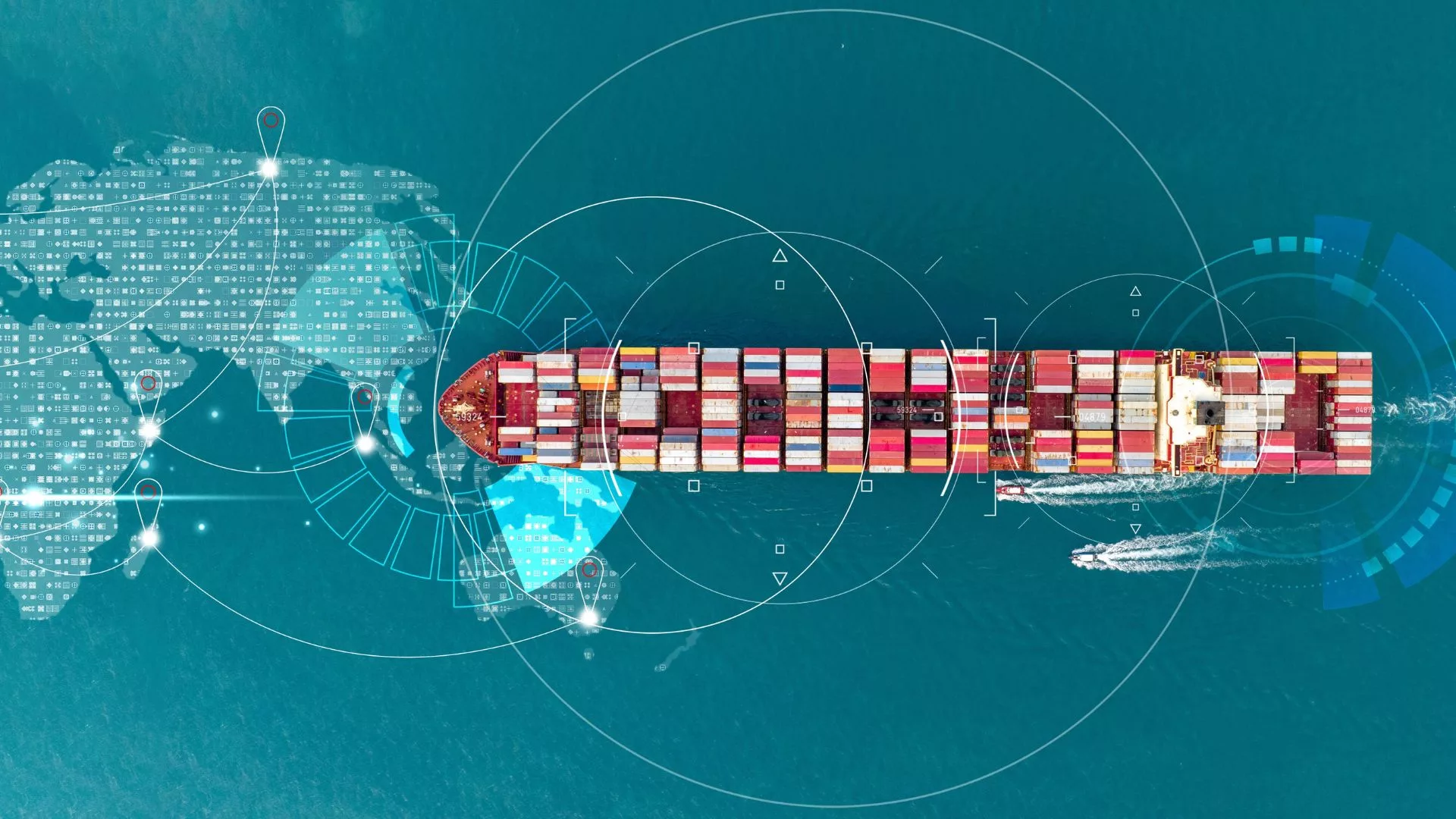Late last week, US and British forces launched a series of missile strikes and air raids against a dozen sites in coastal Yemen. Their targets were the men and materiel of the Houthi, a semi-tribal Shi’ite militia who have, since early November, been lobbing suicide drones and cruise missiles into the Bab-el-Mandeb Strait, at the mouth of the Red Sea, and trying to sink international merchant shipping – in response, they say, to the Israeli invasion of Gaza.
In contrast to the low-tech Somali pirates who haunted the northwest Indian Ocean twenty years ago, the Houthi stand out for their technological and tactical sophistication of their attacks. Although a non-state actor, they have access to the kind of firepower most rebel groups would only dream of, using advanced anti-ship cruise missiles and a mixture of commercial and military drones, alongside a fleet of fast speedboats, and at least one helicopter. The Houthi, previously a minor regional concern, are now key actors in an increasingly complex geopolitical dispute between the Western alliance and the global South.
The Red Sea, one of the world’s most vital waterways, has become bitterly contested, forcing hundreds of ships plying the routes between Asia and Europe to change course and go around the Cape, adding thousands of miles to their journeys – and tens of thousands of dollars to their daily costs. Trade in oil, gas, grain, bulk cargo and consumer goods has been disrupted, with significant knock-on effects. So what, exactly, is going on?
Who are the Houthi?
The Houthi are a rebel group under the control of the al-Houthi clan, founded in the mid 1990s to oppose what they, as devout Shi’ites, see as the overweening influence of Saudi-funded Sunni Wahabists in Yemen. Since 2004, they have been fighting Yemen’s government; in 2014 they launched a lightning assault on the capital, Sana’a, which kickstarted a civil war that grinds on today. At least 150,000 have been killed as a result, and the fighting has plunged Yemen into the direst imaginable poverty. By far the world’s poorest country, some 80% of its people require urgent humanitarian assistance.
The world has, however, largely stood back. In 2015, Saudi Arabia launched an intervention characterised by indiscriminate bombing, tacitly supported and supplied by the UK and US, which has only worsened the situation. A decade of war has changed nothing: the Houthi remain in control of the capital, as well as much of the coast and the country’s northwest. Having evolved from a ragtag rebel group to a professionalised militia, they have a viable standing army and are the de facto rulers of Yemen.
The Houthi are not jihadists, and until last year had little interest in taking their war anywhere outside of Yemen. They issued frequent, luridly colourful denunciations of Israel – but these are frankly commonplace in the region, and were not taken as seriously as they perhaps should have been. As a Shi’ite tribal movement in a largely Sunni region, the Houthi quickly attracted the support of Iran’s Revolutionary Guard, who have been quietly supplying and training them, just as they had with Lebanon’s Hezbollah, and more recently the Palestinian militant group Hamas (who are Sunni, but now form part of Iran’s ‘Axis of Resistance’ across the Middle East, a series of non-state militias maintained as deniable assets for operations against Teheran’s enemies). Although Iran denies it, it’s under their tutelage and with their equipment that the Houthi were transformed into the formidable international actor they are today; and it’s fear of conflict with Iran that keeps them largely protected from Western military action.
Why are they attacking ships?
The Houthi claim that their attacks are in response to Israel’s ongoing assault on Gaza – itself launched in the aftermath of Hamas’s October attack – and have taken it upon themselves to disrupt any shipping that they claim is supporting Israel’s war. However, they define this quite broadly, and their operations have since morphed into a general harassment of western shipping, rather than specifically Israeli vessels. The Houthi appear to have solid intelligence-gathering capabilities, as well as access to military-grade radar or satellite imagery, as they seem to know the ultimate nationality – not just the registered flag or home port – of the ships passing under their guns, as well as the location of western warships, which have also come under attack.
True to their stated aims, they have mainly attacked vessels linked to the Western alliance. (For complex tax and legal reasons, most ships, even if ultimately owned and operated by a company in Europe, America or the Far East, are usually registered in Liberia, Panama or the Marshall Islands; it can take even dedicated analysts days to find out who actually owns them; that the Houthi are able to figure out who is who suggests at least one disaffected shipbroker in their ranks; or access to intelligence from a major power). By contrast, Russian-linked tankers have been running the Bab-el-Mandeb unscathed, as have Chinese vessels, which have taken the additional precaution, according to mainland newspapers, of flying large five-star flags from their sterns to ensure safe passage.
The question for policymakers is whether the Houthi are operating independently, or whether they are under orders from Teheran. Iran, for its part, denies any link, and some analysts believe that there may be some truth to these claims. Although Iran has undoubtedly supplied and trained the Houthi, Hezbollah and Hamas, there is less certainty as to whether or not the militias are still on Teheran’s leash: they may have grown beyond the control of the Revolutionary Guard. Perhaps they never were; it would be in keeping with Iran’s grander strategy to introduce an element of chaos to regional affairs by unleashing well-equipped militias without having to expend any effort micromanaging them.
A series of warnings issued to the Houthi by the Western alliance had no effect; nor did last week’s airstrikes appear to have much impact. Further attacks have since taken place, and look set to continue for the immediate future. This raises the very real possibility that the world will have to adjust to a situation where the Red Sea is no longer a viable trade route.
What is the impact on international trade?
There are few better places to disrupt international trade than from the Red Sea. Linking the Indian Ocean with the Mediterranean via the Suez Canal, it handles 12% of all global marine traffic and is the fastest route between Europe and Asia, running freighters carrying everything from containers to bulk goods. While there are alternatives – for instance, routing traffic around the Cape of Good Hope – these are nearly double the length, and far more expensive. When the canal was blocked for six days in March 2021 when the MV Ever Given ran aground, it cost $9.6 billion in lost trade, for less than a week’s disruption.
In response to the Houthi attacks, the major shipping firms – Maersk, MSC and Hapag-Lloyd among them – have announced that they will re-route around the Cape, while Lloyds of London has hiked up insurance rates accordingly. This has had the unfortunate side effect of driving up shipping prices significantly, which will be directly reflected in consumer inflation at home. (However, anyone who brokers voyages via time-charter should get a nice spring bonus now).
Particularly concerning are the impacts the Houthi blockade will have on Europe’s oil and gas supplies. Gulf oil comes invariably through the Red Sea, as does Australian and Indonesian liquid natural gas. With Europe already cut off from Russian hydrocarbons by US sanctions (and the timely sabotage of the Nord Stream pipeline just to make sure), the future of its energy mix is even more volatile, in the depths of an already punishing winter. Supplies that have to round the Cape will cost dearly, further driving up wholesale prices, with the knock-on effects on inflation that we have all become so familiar with over the last three years. Expect German manufacturing to continue its slow-motion collapse, especially as parts from China arrive more slowly.
However, not everyone will suffer from the blockade. As mentioned above, Russian and Chinese ships continue to sail the Red Sea without risk. Their governments have both stood back from the Israel-Gaza crisis and so are not a target for the Houthi. This raises the intriguing possibility, should the attacks continue, of a two-track global trade network: of a world where the Red Sea is closed to Western shipping, but not to other powers, giving them a formidable price advantage.
What has been the international reaction?
Reactions to the Houthi blockade have been mixed. The US, UK and Canada have taken a kinetic approach, sending warships to patrol the Red Sea and intercept Houthi missiles where possible. The US-led mission, known as Operation Prosperity Guardian, was until last week defensive in posture and has received support from Denmark, the Netherlands, Australia, Bahrain and – surprisingly – South Korea. The internationally-recognised Yemeni government has even grudgingly approved foreign strikes on its own soil, saying that the Houthi need to be stopped.
Press briefings have claimed that the operation is simply to ensure the safety of international maritime trade; however, it is clear that it is inextricably linked to Israel’s war, leading some to point out an inconvenient truth: the US is now conducting military operations in the Red Sea in response to attacks that are a result of a conflict it is doing much to prolong, by continuing to veto UN demands for a ceasefire in Gaza. In short, the US is now fighting a fire it helped to start, and expecting credit.
Nor are the optics of the operation good, particularly in the global south. The US and UK have never escaped the shadow of Iraq and Afghanistan, and now yet again find themselves embroiled in another regional conflict. Bombing the world’s poorest country is never a good look; doing so in indirect support of Israel’s punishing assault on Gaza hardly helps things. While the UN Security Council has belatedly released a demand that the Houthi stop their attacks, last week’s attacks were conducted without UNSC authorisation, bringing back bitter memories of Iraq, or of America’s decades-long air war in the Islamic world.
It is worth noting which countries have remained neutral. Japan has stayed quiet, despite a number of its vessels coming under attack – perhaps because it gets most of its oil from Iran – and France has remained above the fray. Russia, as an ally of Iran, has been afforded special protection; while China, an increasingly significant player in the Middle East, has led a remarkable effort at the UN to insist on the necessity of a negotiated peace and adherence to international law, and decry the quick resort to military action by the western powers. If anyone can be said to be ‘winning’ the Red Sea crisis, it is Beijing, which has leveraged existing goodwill among the nations of the Global South to build up a large neutral bloc at the UN and position itself as the adult in the room: a surprising result, to be sure.
The Red Sea crisis is far from over. In many ways, it is a symptom of an increasingly anarchic world: one where non-state actors have cruise missiles, where civil wars in small countries can kneecap international trade; and where the world’s old powers are finding that their reach isn’t quite what it used to be. We can expect to see more events like it.
- Sean Paterson
- Sean Paterson
- Sean Paterson
- Sean Paterson
- Sean Paterson
- Sean Paterson
- Sean Paterson
- Sean Paterson
- Sean Paterson
- Sean Paterson
- Sean Paterson







